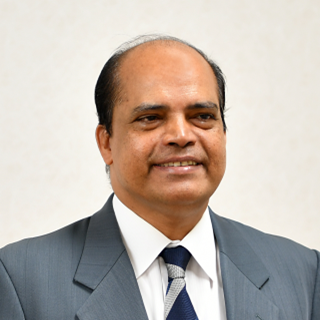

*Not accepting M.A. and PhD students
j-puthen[at]sophia.ac.jp
+81-3-3238-3929
Address:
Room 1129 Bldg No.2, 7-1 Kioi-cho, Chiyoda-ku, Tokyo, 102-8554 Japan
Economic Development and Human Development
Environment and Development in Developing Countries
Born in 1956, Kerala, India. Ph. D. (Economics). After completing his degree studies in Economics and Philosophy in universities in India, he came to Japan in 1986 and obtained a degree in Theology at Sophia University. Obtained a Doctoral Degree in Economics at the University of Glasgow (Glasgow, United Kingdom). His research aims at designing models that make possible both a sustainable environment and economic development from the perspective of developing nations premised on variables of human development, empowerment of poor people, and real globalization. He has written and published many books and articles in his field of research.
In the 20th century, poverty in many regions of developing nations was substantially reduced, the literacy rate was improved, and development progressed. However, amid this economic development, a number of global and local environmental problems gradually surfaced and the gap between the rich and poor widened. Developing nations have lapsed into a vicious cycle involving the degradation of environment and mal-development, with poverty itself causing some of the environmental problems. In 1987, the Brundtland Commission presented a definition of sustainable development and since then it has become the central norm of development. We need to find new path to make sustainable development of developing nations viable. My research aims to integrate various aspects of environment and development on the basis of global concepts and the conditions of developing world.
I approach problems of the environment and economic development of developing nations against a backdrop of global concepts based on the international conference documents relating to global environment, human development and United Nations Millennium Development Goals.
During the initial stage of this programme, students would be taught to perceive the developing world with sufficient theoretical base with economic growth and development models. During the later stages, students would focus on international conference documents relating to global environment, and would be guided to learn and deepen their understanding of international rules and frameworks, beginning with Stockholm Conference leading to post Kyoto Framework, from the perspective of developing nations. In addition, by approaching environmental problems from the perspective of economic development, students can closely learn hitherto unseen socio-economic structural problems and would be challenged to design new models that would balance environment and development that suits the green economy that we are striving to build.
In my seminar, I run a unique program of study in which each student can choose a developing nation or region and research freely on its problems and issues relating to both the environment and economic development. In order to build a theoretical base, I would introduce various models and documents relating to environment and development during the seminar classes. Students will have opportunity to present and discuss their research and finding on their respective topics also.
By focusing on economic development theories and global environmental frameworks that aim at realizing a sustainable global environment and understanding the present situation of developing nations, I would like students from both the Master’s and Doctoral Courses to find solutions to problems related to both the environment and development through their reports and theses.